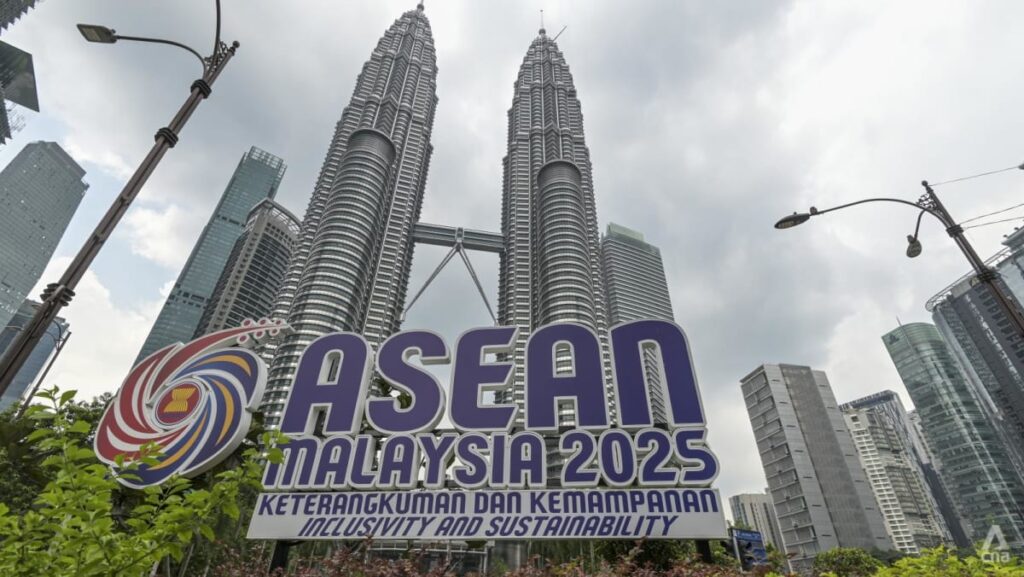“PRINCIPLED FRIEND”
Beijing has been courting closer ties with Southeast Asia, positioning itself as a “reliable trading partner” despite tensions with ASEAN members over rival claims in the South China Sea.
Li will attend the first-time summit between ASEAN, Beijing and oil-producing nations including Bahrain, the United Arab Emirates, Qatar and Saudi Arabia.
That follows Chinese President Xi Jinping urging greater cooperation between Beijing and Malaysia “to safeguard the bright prospects of our Asian family” during a Southeast Asian diplomatic charm offensive in April.
Anwar said in return that Malaysia would “remain an unwavering and principled friend to China”.
However, anger over US tariffs also meant that ASEAN countries “won’t automatically fall in China’s arms”, a diplomatic source, who asked not to be identified, told AFP.
“It’s not a binary situation. ASEAN knows that China is just like the US in that it’s a big power which will bully them when it wants to,” the source said.
And “while the general consensus is that they are angry at the US … nobody wants to offend Washington either”.
James Chin, professor of Asian studies at the University of Tasmania, warned that playing to both the United States and China was a “high-risk strategy”.
The danger of staying neutral is “that every single foreign policy action that you take will then be scrutinised” by each opposing power, Chin said.
Others said ASEAN’s policy of neutrality remained valid.
“The rest of the world should not have any problem with ASEAN’s position to ‘be friends with everyone’,” said S Munirah Alatas, a geopolitics specialist at the University of Malaya’s Allianz Centre for Governance.
However, she said the bloc still faced tough unresolved challenges, including “hostilities in Myanmar and recurring tensions in the South China Sea”.
“But successfully addressing these are not premised on ASEAN’s neutral geopolitical position,” she said.
Read the full article here

